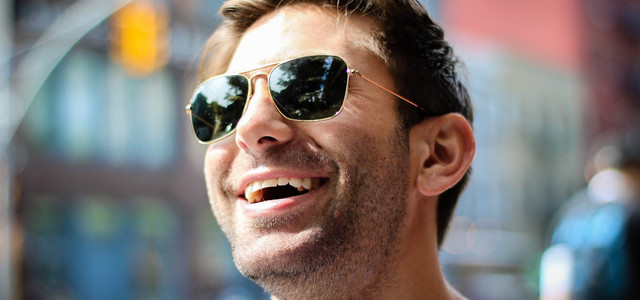
The sun’s rays can cause long-term damage to the eyes. An ophthalmologist explains when you should reach for sunglasses and how to recognize high-quality ones.
Anyone who spends a lot of time in the sun should not only pay attention to sufficient sun protection for their skin. The eyes could also suffer long-term damage from sun exposure, warns ophthalmologist Philipp Steven in an interview with Die Zeit. For example, there could be “a kind of sunburn on the surface of the eye” if you spend a lot on the water or in the mountains. Stevens says: “If this happens once, the cells regenerate quickly. But if this happens more frequently, permanent damage can occur – for example small growths in the cells in the conjunctiva.” That is why the specialist recommends sunglasses – but there are a few things to consider when buying them.
What makes good sunglasses
According to Stevens, two factors are crucial when buying sunglasses: the sunglasses must have both a CE mark and a UV 400 mark. Then you know that the glasses have been adequately tested and filter out a large part of the UV radiation. But be careful: “Glasses at street stands sometimes have these stickers on them – but you shouldn’t trust them,” explains the ophthalmologist and therefore recommends buying them in sports shops or drugstores.
It is true that sunglasses do not have to be particularly expensive to provide adequate protection. Those cheap glasses, which you can get on every street corner in holiday resorts, should be the absolute emergency solution – and only for adults. Because “these cheap sunglasses can be harmful for children” because children’s eyes are more sensitive and more of the sun’s radiation can penetrate there, says Stevens.
Depending on the load, consider additional factors
Basically, Stevens thinks it makes sense to always wear sunglasses when you would protect yourself with sunscreen in the right weather or when the brightness outside feels uncomfortable after the first few minutes. In the everyday working life of many Germans who only go out in the sun for a short time during their lunch break, and even when driving, regular sunglasses would be sufficient.
“It’s different with sunglasses that you put on for outdoor sports – such as water sports, road cycling or in the mountains,” explains Stevens. Wherever a lot of light is reflected, it makes sense to wear tight-fitting glasses, preferably with polarized lenses. However, mirrored glasses are primarily marketing and the color of the glasses is also irrelevant for health.
Source used: time
Read more on Techzle\.com:
- 49-euro ticket: New rule applies from tomorrow
- German Weather Service warns: Storms and hail threaten here
- 10,000 steps a day? New study corrects the fitness rule